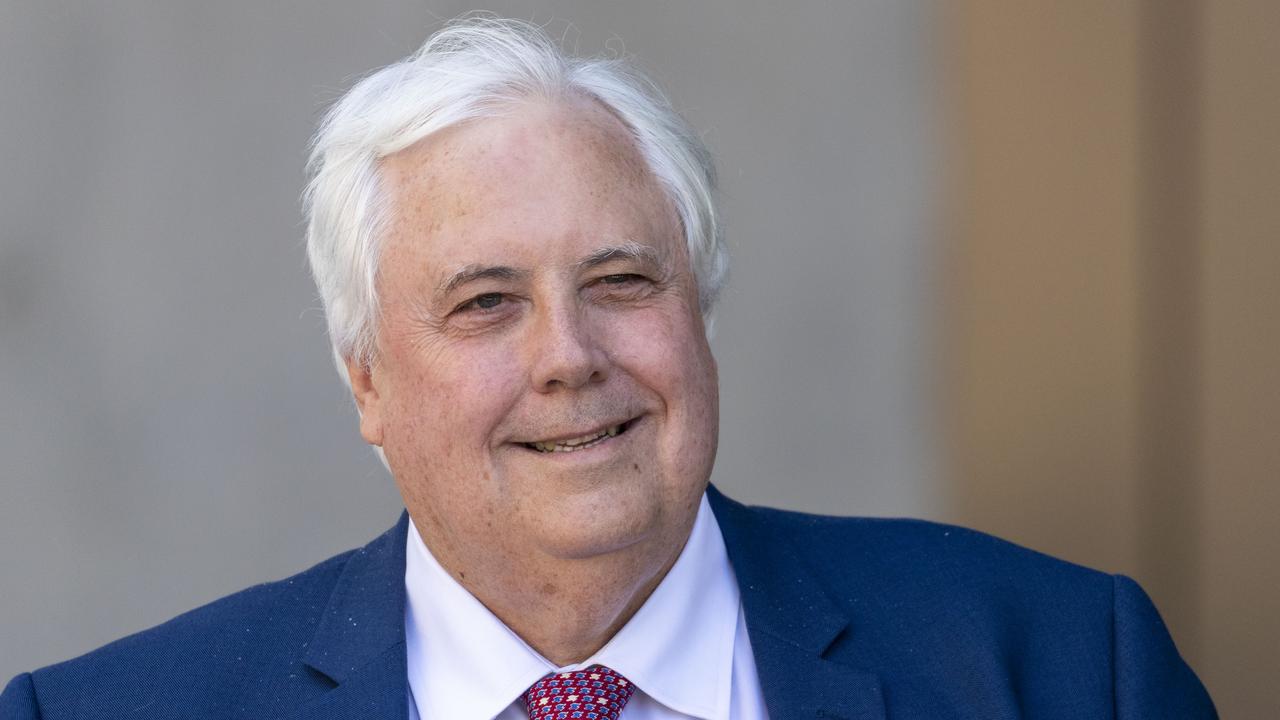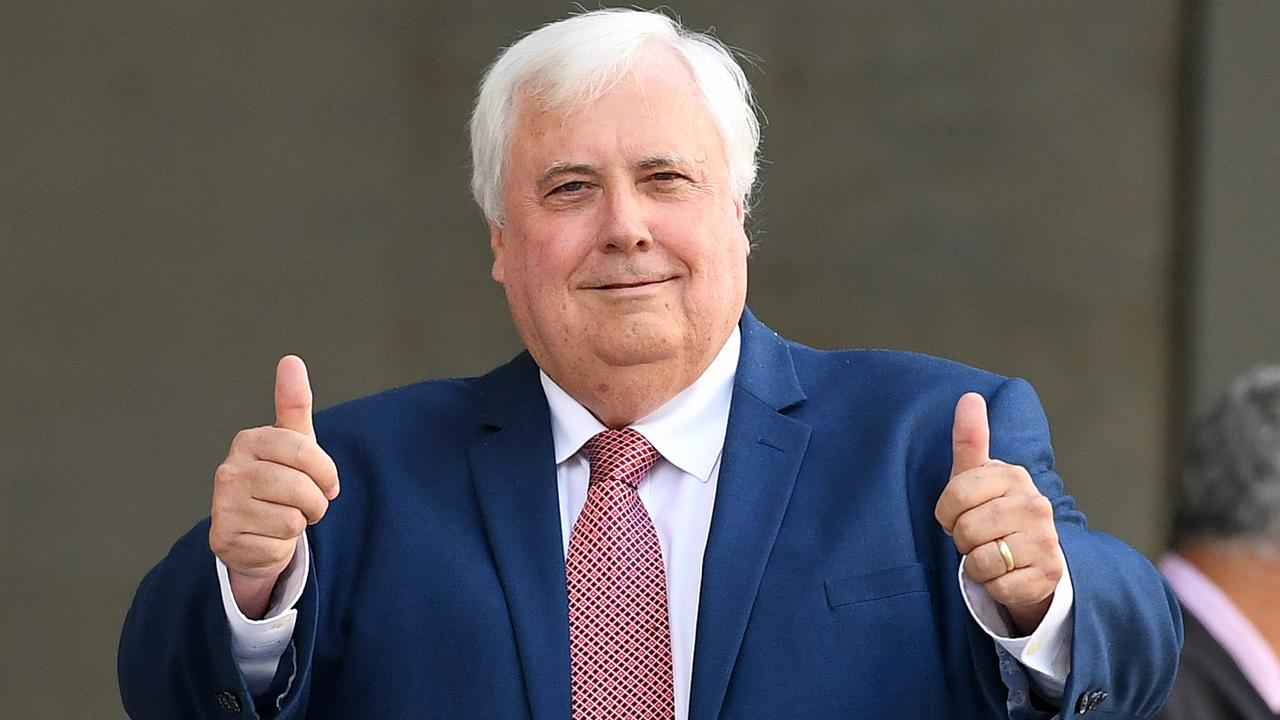Courtroom evidence corners Clive Palmer on his loss-making businesses
CLIVE Palmer's pledges that he is now a "full-time politician" and not answerable for his loss-making businesses are contradicted.
CLIVE Palmer's pledges that he is now a "full-time politician" and not answerable for his loss-making businesses are directly contradicted by courtroom evidence that as a company director, he is personally and legally liable and would never "sub-contract" or seek to "obfuscate" these responsibilities.
The testimony from Mr Palmer, head of the Palmer United Party and new member for the federal seat of Fairfax, came in the Queensland Supreme Court where he was the defendant in a dispute with Hyatt over his actions last year at the five-star Sunshine Coast tourism resort he had purchased months earlier.
Mr Palmer has responded to questions in recent weeks about his most significant business interests - all of which are unprofitable and have led to major job losses, investigations by The Australian have shown - by distancing himself from the companies in question. However, he has neither resigned as a director nor divested himself of his equity stakes.
Mr Palmer said at the National Press Club in Canberra last week: "I'm a retired person in business. I'm a politician now, I leave business to other people, you know. I'll declare my interests, what I own as an investor, but I'm not in business, I don't work for any company.
I'm a member of the House of Representatives. I'm just an investor, really. Companies I own are not me. I'm a different person. I'm flesh and blood. Companies are not flesh and blood."
In the sworn testimony, Mr Palmer told Supreme Court judge Glenn Martin early last year: "I'd say as a director of the corporation I've got the responsibility to know every day regularly what's happening, what's the position of the company."
Mr Palmer also told the Supreme Court: "I have that obligation to the people of Queensland and the people who work there to ensure that it's a safe environment. If I don't do that, I'm held accountable and so I should be. So we take very seriously our obligation as directors. We have obligations, rather than rights, under the law to ensure certain compliance with the law."
Mr Palmer, citing the federal Corporations Act and other requirements under Queensland legislation, added that if "we don't comply with those things as directors, we can be personally held accountable and creditors can certainly come after us".
"One overriding obligation (as a director) is to ensure that the company remains solvent, to ensure that creditors are paid, to ensure that we can comply with corporations law, the relevant tax legislation in relation to the payment of group tax on behalf of employees, the payment of GST and other matters, the requirements under the health and safety acts in Queensland and other places, to ensure that the resort is run accordance with that legislation . . ."
Mr Palmer said (directors) "can't sub-contract the responsibility or obfuscate from it . . . and I have to be able to be in a position where (I) can control these things and direct them . . . (and) I think the law stands above any agreement or any contemplated situation".
Company minutes leaked to The Australian last week from an executive meeting at Mr Palmer's troubled nickel refinery near Townsville last month disclose that management is concerned about keeping it open amid a slumping nickel price, the ongoing loss of experienced staff, "non-existent morale" and heightened safety fears.
Former and existing staff at Mr Palmer's Sunshine Coast tourism resort, which is being turned into a dinosaur park, have provided statements alleging the workplace is "toxic" due to bullying and abuse of staff by Mr Palmer and gross mismanagement, leading to a workforce of more than 650 being reduced to fewer than 150.
Mr Palmer, who has denied the allegations, has launched defamation proceedings against The Australian.
Mr Palmer's other major business interest, iron ore tenements in the Pilbara in Western Australia, is not generating income or significant royalties from Chinese company CITIC Pacific, which has rejected his demands that hundreds of millions of dollars a year are payable. Mr Palmer falsely claimed earlier this year he received $500 million annually in royalties.



